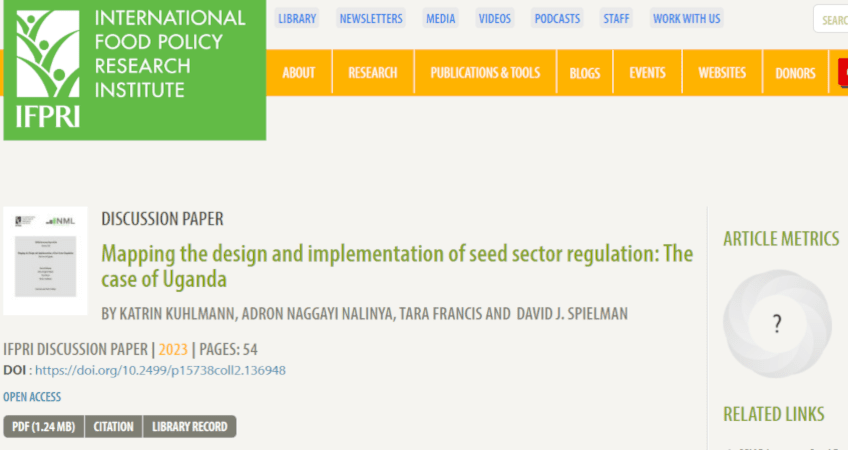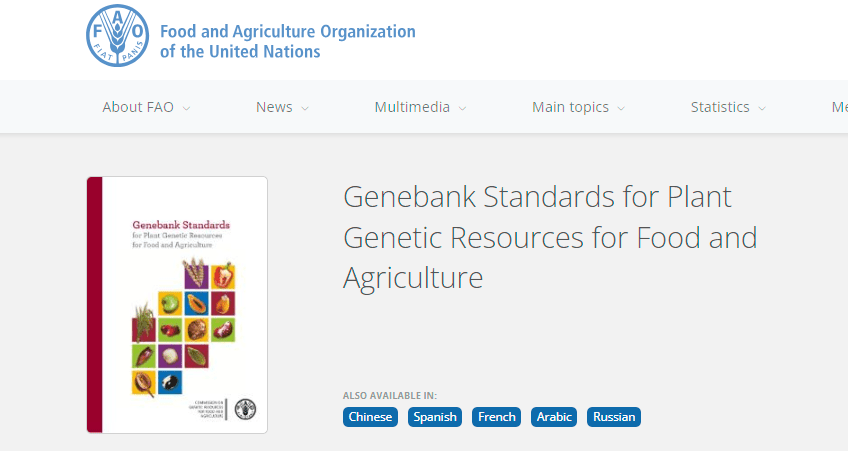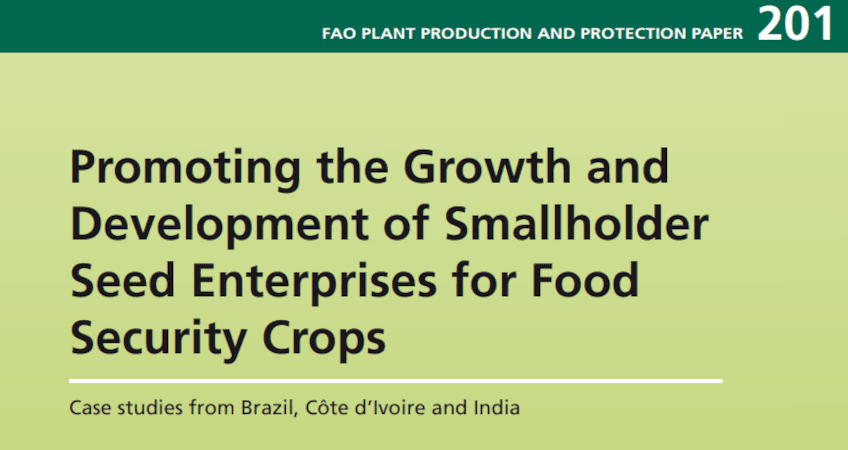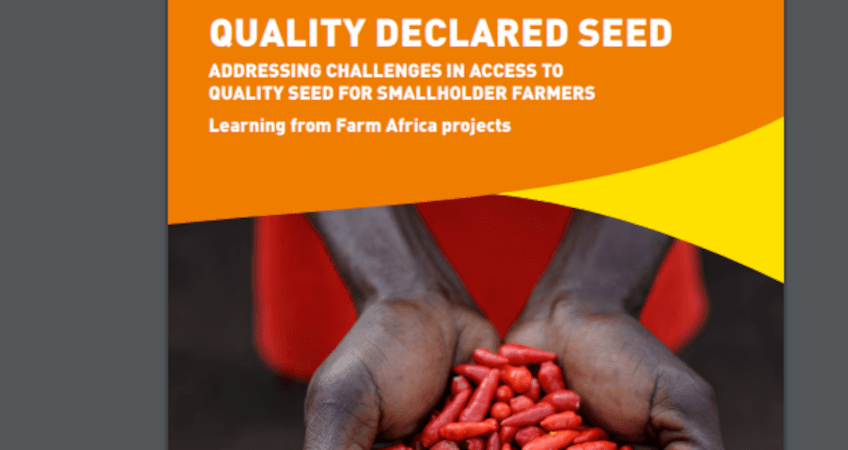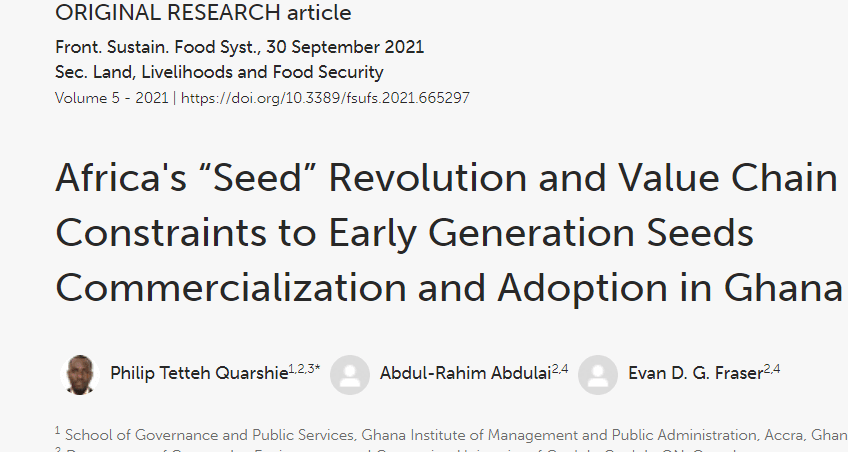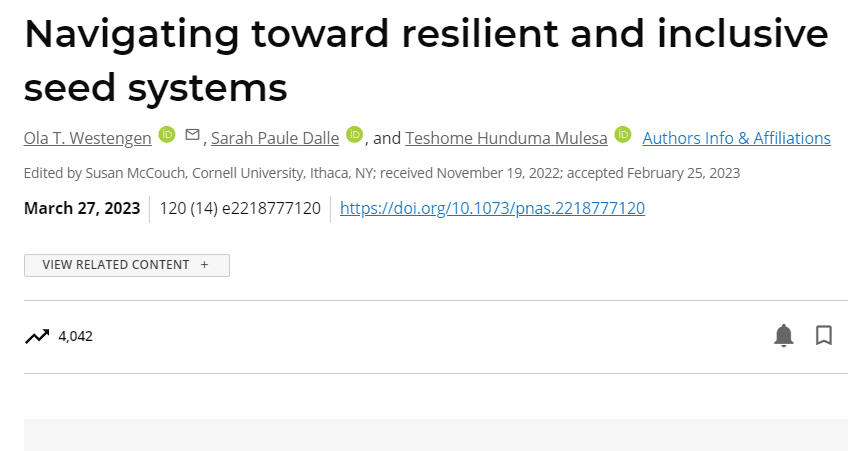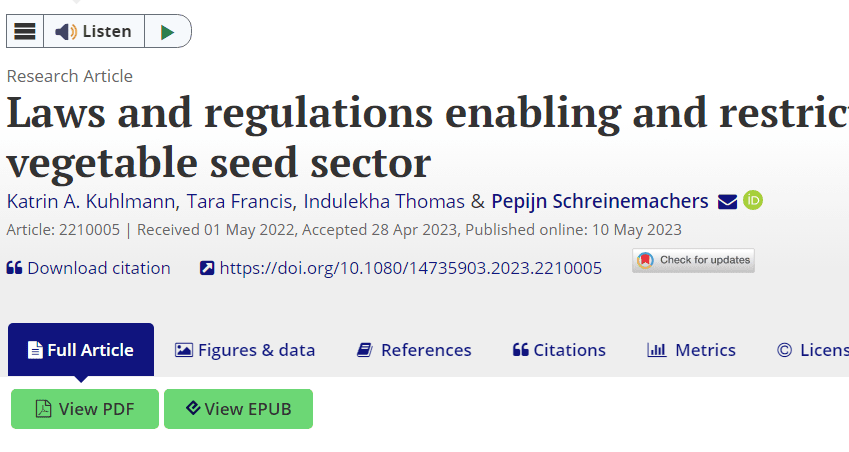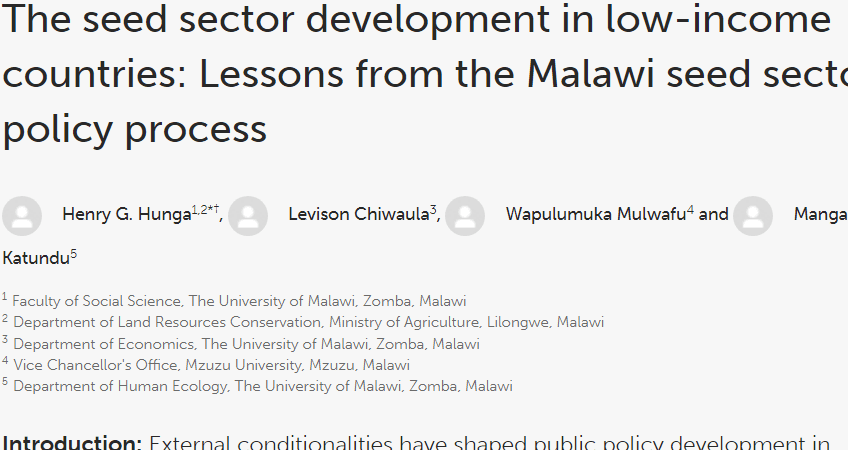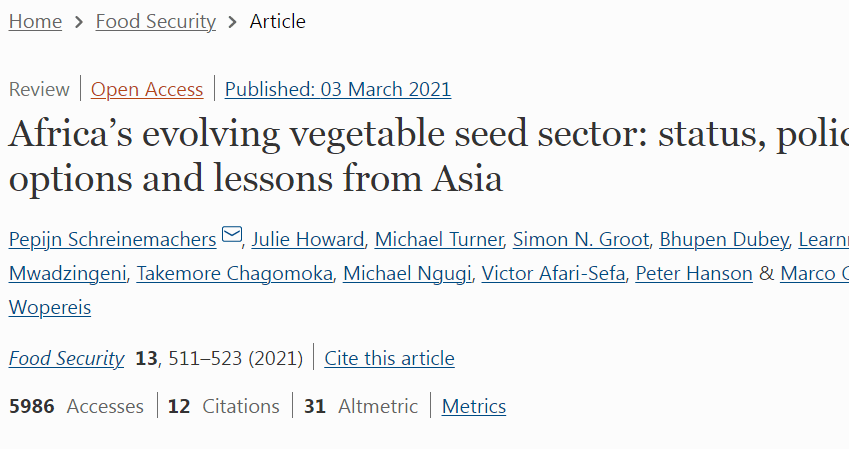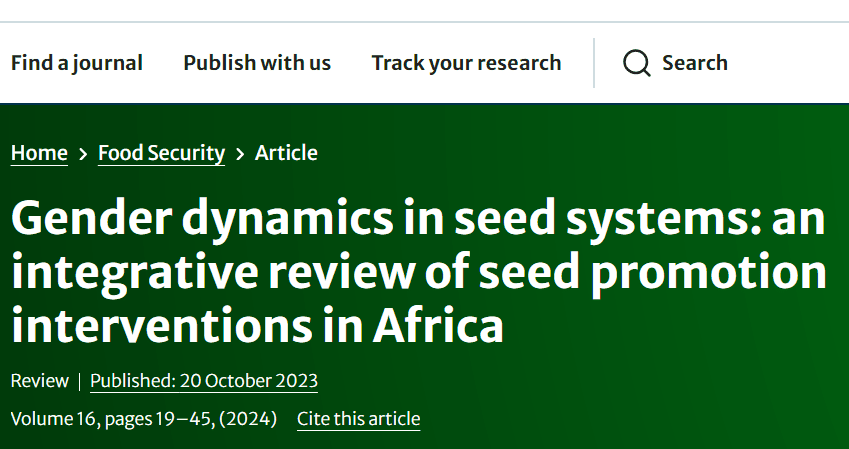
Week 115 – Litterature Review: Gender dynamics in seed systems: an integrative review of seed promotion interventions in Africa
Authors: Berber Kramer & Carly Trachtman, Springer Nature
Keywords: gender; seed policies; quality seeds
“Gender gaps in adoption of high-quality seeds of improved varieties persist in Sub-Saharan Africa, despite the implementation of various seed promotion interventions aimed at increasing adoption among all farmers. This paper reviews existing literature on common seed promotion interventions in Sub-Saharan Africa (including subsidies, financial services, quality certification schemes, and agricultural extension) and asks to what extent these interventions serve women farmers as much as men farmers.[…]”
Click on the following link to access the content: https://link.springer.com/article/10.1007/s12571-023-01403-2#:~:text=In%20terms%20of%20overall%20findings,and%20can%20improve%20women’s%20livelihoods.
© 2024 Springer Nature
